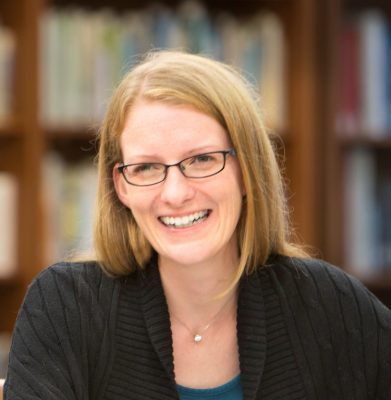“We are all more alike than not” – Moving Beyond Universalism for Anti-Racist Pedagogies in the Literature Classroom
Assistant Professor of German, Wayne State University
When I teach literature classes and courses on intercultural competence, students often focus on sameness. “We are all more alike than not” they conclude and connect this to a hope that if everyone understood the common humanity of people of different racial, ethnic, and religious backgrounds, we would be able to overcome discrimination and oppression of those perceived as others. It is my explicit goal in all of these classes to move beyond this stance and to shift the discussion because anti-racist pedagogies can only build on a foundation of recognizing and valuing difference.
In this talk, I will present a theory of literature that distinguishes between texts that follow the logic of sameness or universality and texts that incorporate ambiguity and uncertainty. The latter texts, I find, provide ample space for reading with an intercultural lens and for developing ways of thinking about empathy in difference. I will then move to the practical application of this theory in the classroom and introduce sample texts and assignments that support efforts to decolonize the literature and culture classroom and to center multiperspectivity and inclusive diversity in our discipline(s).
Bio
Nicole Coleman is Assistant Professor of German at Wayne State University, where she teaches German language and culture classes at all levels and Global Studies courses on comparative literature and intercultural competence. Her main research areas are 20th and 21st century German literature, intercultural literature including but not limited to migrant and minority literature, and the intersection of literature and human rights. Her current book manuscript, with the working title “The Right to Difference: Interculturality and Human Rights in Contemporary German Literature,” creates a taxonomy for reading human rights literature with an intercultural lens. The book includes literary analysis and approaches to teaching for social justice and intercultural citizenship with texts that center ambiguity and uncertainty. Nicole was also part of the team that co-authored Impuls Deutsch (2019 and 2020), a first- and second-year German language textbook series that centers questions of inclusion and interculturality.
Doing research with university Indigenous students: From ‘rationalizing the decolonial to feeling the decolonial’
José Aldemar Álvarez Valencia, Ph.D.
Professor, School of Language Sciences
Universidad del Valle, Cali (Colombia)
Through this talk I intend to humbly share with the audience my experience as a researcher who engages with decolonial thinking in conducting research with Indigenous students. In doing this, I discuss my locus of enunciation as an educated middle-classed mestizo working in a public university that is situated in one of the most multicultural cities in Colombia. I describe the process of engaging with decolonial theory and how it materializes in the study that I am currently conducting with my research team. Stemming from this research work, I reflect about whether academics need or have to move from rationalizing to feeling as decolonial subjects. That is to say, how we can move from thinking decolonial to feeling decolonial, a distinction that one can identify when interacting with minoritized advocacy groups.
Bio
José Aldemar Álvarez Valencia is Professor at the School of Language Sciences and the chair of the Major in ELT Education in the Interinstitutional Doctoral Program at Universidad del Valle, Colombia. His work focuses on expanding students’ meaning-making resources by articulating interculturality and multimodal pedagogies. His research interests include critical intercultural education and decolonial theory, and multimodal communication. His publications include the co-edited volumes Critical Views on Teaching and Learning English Around the Globe (2016) and Interculturality in Language Teacher Education: Theoretical and Practical Considerations (in press).

